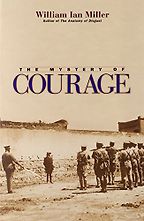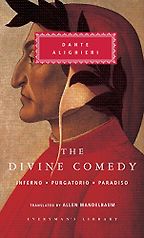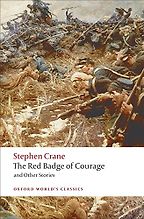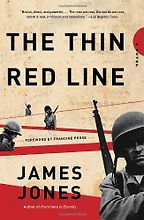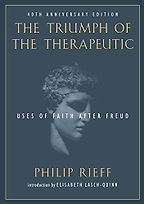My first question is why you chose to work on cowardice?
I wish I had a good answer to that. I have a kind of smart-alecky answer that just appeared in The Irish Times. Why would anyone choose to write on cowardice? The question implies that it’s an obscure topic and should stay that way. I don’t have a great cowardly story where I was on the battlefield and ditched my comrades, but that in part is because I’ve never been on the battlefield. But I do have a vague worry and sometimes not so vague worry that I myself am cowardly. And then there’s the fact that I’m a bit of a contrarian. The project originally started out exploring the concept of courage in the modern age, but lots of people have written about courage and nobody had written about cowardice, and so the field was open.
And this relates to your first book, The Mystery of Courage, by William Ian Miller. I read that Miller wanted to write about cowardice himself and ended up not being able to and so wrote about courage instead. What it is about cowardice that needs its opposite to be thrown into relief?
Miller says on the very first page of the book that it was meant to be about cowardice, but that cowardice ‘gave way’ – that being what it always does — and courage is what it gives way to. It’s a rare case of the virtue being sexier than the vice. You frequently see cowardice figuring as a sort of foundation to a story of courage. At the beginning of Lord Jim, Jim is a sailor who jumps ship in a cowardly way. The rest of the novel is about him trying to redeem himself. In many stories an act of cowardice — or a supposed act of cowardice — is what starts off a story about courage. The Four Feathers is another example. It’s a book (and many films, the 1939 version is the classic) about a British military officer in the 1880s who decides to give up his position so that he can marry his true love. Around the same time war comes in the Sudan and his three army pals are outraged that he does not decide to change his plan and join them and go to battle. So they send him white feathers to shame him about his cowardice. He deals with that ok but the fourth feather comes from his fiancée, and that’s the feather that breaks his determination to not go to war. This happens at the beginning of the book and the rest of the tale is of his going in disguise to the Sudan and saving the lives of each of his comrades who had sent him the feathers. So courage takes over. And needless to say, in the end, he gets his fiancée back.
In reviews of Miller’s book he seems to get compliments because he’s looking at a trait people love. Is fear of the opposite reaction why there were no monographs on cowardice before yours?
Yes absolutely. There’s no other monograph out there. Though there is a long tradition of talking about not talking about cowardice. The Inferno is the classic moment of people not wanting to talk about cowardice. Dante hesitates while Virgil is leading him along even though he has a guaranteed safe passage through hell and knows that at the end of his journey paradise awaits him. Even before he goes in through the gates he’s hesitant and Virgil says ‘don’t be a coward,’ he doesn’t say ‘be a hero,’ he doesn’t say ‘be courageous,’ he says ‘don’t be a coward, don’t hesitate, you’re equivocating: just do it.’ And then when they get in, just inside the gate, in the Anteroom he hears this terrible weeping and slapping and sees uncountable millions of souls crying and being stung by wasps and flies, and Dante asks Virgil ‘Hey, what’s the deal with these people?’ Virgil tells him that these are the cowardly neutrals, but he is very brief with him and concludes by saying ‘Let us not speak of them’. Both Dante and Miller do say some really interesting things about cowardice, though it doesn’t get that much attention.
You mention a Spanish proverb in the introduction to your book that says something like ‘there are no stories about cowards’.
Yes, and Dante gives us one reason why — or Dante’s Virgil does. He tells Dante the pilgrim that these shades he sees are the neutrals, the wretches who lived with neither disgrace nor praise; they never committed to anything in life and so have no hope in death, he says. They’re not has-beens but never-weres. So of course nothing’s ever written about them. The world doesn’t want to hear about them. I’m still trying to find a famous coward.
Stephen Crane’s The Red Badge of Courage is the first of two novels that you’ve chosen. I wondered if you could outline what it says about cowardice, because again it’s a book that has courage in the title.
Right, it has courage in the title, and it actually never mentions the word ‘coward’. I speculate in my book about a moment when someone who is talking about an officer who shirks his duty gets interrupted, he says something like, ‘I always thought he was a –.’ But the word never gets mentioned, and I assume that he was going to say ‘coward’. Red Badge obsesses over that word it doesn’t quite name.
It’s the classic novel of the American Civil War. Henry Fleming — the youth whose tale is told — is worried throughout whether he will find he’s a man of traditional courage, or whether he’ll find that he is a coward. And he thinks the way he’ll find this out is by going into battle. Then he runs away from battle, and feels that he is a coward. But then he realises that no one actually saw him run, and so he feels better about himself. He convinces himself that he had run with dignity, while others who fled looked like chickens. The comedy of the novel is underrated. There’s another very humorous moment — one of my favourite moments — they’re having some kind of debate and the line is: ‘it was hard to have a fierce argument in the presence of such sandwiches.’ They’re sitting at the camp and there is something about being comfortable and well-fed that leads us away from hard talk and hard thinking. Being comfortable itself becomes a kind of evasion.
“I’m still trying to find a famous coward.”
The other interesting thing about Henry Fleming for my purposes is that in a later story that Crane wrote, called ‘The Veteran,’ he tells us the tale of how Henry Fleming dies. This happens thirty years later: having survived the war, he’s in a grocery store with his grandson and he’s joking about how he had fled when he fought for the Union Army. He never would have joked like this when he was 17. His grandson is there and is just shocked to see his grandfather make a joke about running. He’s scandalised. But then the second half of the story tells of how Henry’s barn catches fire and he dies rescuing animals from it. So the courage is there but it seems like a courage that is not driven by the fear of being cowardly, it seems driven by a love of all God’s creatures.
I was really struck by one definition of cowardice you use: ‘an instrument that the powerful use to get the less powerful to do awful things to others and to themselves’ — is the grandson part of that system of young men being terrified by cowardice, whereas Henry becomes brave in a more real way?
Maybe I should have offered my working definition before — cowardice being a failure of duty because of excessive fear. Of course cowardice can be used as an instrument of the powerful and it can infect the powerful themselves, who can become fearful of being cowardly and so go on to do reckless things. But just going by the simple definition and applying it to the question that the young Henry was asking — would I run if battle came because of fear? — that would clearly be cowardice because his duty was to stay in place. But in the case of the older Henry, maybe his duty was to save those animals, and the fear may have been of dying, but I speculate that his fear of death has diminished here and so he is able to do the truly courageous thing. The shame of cowardice can brace people to do their duty; but maybe the highest courage doesn’t need such bracing?
Absolutely, and don’t we all have this question about whether we would do the courageous thing if needed? There’s this phrase a soldier in Miller’s book uses, about courage as separate from character and will: it’s something we have no control over until the moment it is tested.
No control, sometimes, but Miller is eager not to dismiss such seemingly spontaneous courage because philosophers often do — it not being a courage informed by, say, knowledge of the good and noble. Miller wants to save courage from the extremes of self-regarding philosophy. Too much love of thought makes us underestimate virtuous acts that seem not deeply considered or deliberative: the quick bravery of the trained soldier, for example.
Crane had no experience of war himself when he wrote this book. Was he writing something original about cowardice or was he part of a literary tradition?
A famous line of his is that everything he needed to know about war he learned playing sand lot football. He said: ‘I believe that I got my sense of the rage of conflict on the football field.’ Fears of cowardice are engrained in the genre of war writing, but though the battlefield is the quintessential arena for cowardice, it’s also true that it’s not the sole arena. The football field can be too. Crane also read a magazine called The Century, which had a series of Civil War memoirs around the time he wrote the book, when he was, I think, 24. Being a young man in nineteenth-century America he was also steeped in a culture that celebrated courage. He did witness actual war a couple years later, in Greece, I think, and in the Spanish-American War.
James Jones, on the other hand, was writing about a war he experienced first-hand in The Thin Red Line. Is cowardice a central preoccupation of the book?
Yes I would say so. It’s a much bigger canvas than the Red Badge, a book that Jones actually wrote a book report on when he was in training in Hawaii, after Pearl Harbor, but before he went to Guadalcanal, but in The Thin Red Line he looks at a number of characters and gets inside the heads of many of them. There’s this one in particular, Fife, who is obsessed with cowardice and worries about it incessantly. And there’s a line I want to discuss that expresses this very well: ‘somewhere in the back of each soldier’s mind, like a fingernail picking uncontrollably at a scabby sore was a small voice saying “but is it worth it, is it really worth it to die, to be dead, just to prove to everybody that you’re not a coward?”’ And so, there it is. The fear of cowardice. Many other students of the military have observed how common it is. At the back of the men’s minds the last thing holding them in place is just to prove to everybody that you’re not a coward. Listen to that line — ‘is it really worth it to die, to be dead.’ Jones is underrated as a prose stylist. To die is this quick thing that happens, but to be dead is an extended matter. It is quite the price to pay to ward off worries about cowardice.
Get the weekly Five Books newsletter
And then Jones is also great when writing about how soldiers felt like numbers, because WWII was fought on such a huge scale. Some soldiers give voice to this idea that it’s just a giant business enterprise and that they are being asked to do things purely as if they’re data points. For instance they are told ‘go, go, take that hill’, not because we want that hill but because taking that hill will draw 40% of the enemy fire and then we can take another hill, and to be subject to that kind of actuarial manipulation of your so-called duty is really unnerving. Jones also talks about how the physiology of fear works, soldiers full of adrenaline, constricting blood vessels. He depicts soldiers as automatons: one of them sings ‘I am an automaton’ to the tune of ‘God Bless America’. It’s an update of Crane. Crane depicts Henry Fleming both fleeing from battle and participating in an attack – and the descriptions are almost identical. You see men crazed and running — it’s the same with supposed cowardice and courage, the only difference being their directions. Jones gets in with 20th century medical knowledge and examines the physiology of fear. And some of his characters are much more ironic and self-aware than young Henry. But both Jones and Crane call traditional ideas of courage and cowardice into question.
Is it more chaotic, does it have less of a moral certainty than Crane’s book?
It’s pretty chaotic in Crane, but we’re getting just a glimpse of one young man and it’s a much shorter book – it’s a miracle of concision, really. And it ends with Henry Fleming finding ‘a quiet manhood’. It says ‘he had been to touch the great death and found that after all it was but the great death, he was a man’. Something like that. Sort of a happy ending, you could say, though the end is much debated. Not moral certainty, but maybe there’s less moral uncertainty — or anyway Henry feels less uncertain about himself than he did at the beginning.
Meanwhile The Thin Red Line ends with the men leaving the island where they’d done such battle, and the last line is ‘one day one of their number would write a book about all this, but none of them would believe it, because none of them would remember it that way.’ And so Jones has tried to write a book that was true to the experience of war as he saw it, but also knew that memory has a way of rosying things up. There’s a kind of amnesia. He wrote about it later in a book called World War II: A Chronicle of Soldiering — about that phenomenon, where soldiers can sit around an American legion hall and have beers and tell themselves it wasn’t that bad, and that they were autonomous individuals, when in fact The Thin Red Line usually is showing otherwise. He basically says: you’re so controlled, you’re on an island in the Pacific, you’re stuck, so cowardice in a way is impossible. And so he has a line about duty: ‘it wasn’t even a matter of duty, he had to go.’ Duty is this essential part of cowardice, but to be a duty there actually has to be some will involved. And there’s no will a lot of times in Jones’s depictions. And where there’s no will, no agency, a moral category like cowardice can’t apply.
How are Duty and Will discussed by Philip Rieff in your last book, his The Triumph of the Therapeutic?
In The Triumph of the Therapeutic they appear as part of the old order that is being displaced or corroded by the therapeutic. The therapeutic comes in place of faith and any ideas of eternal truths or authorities, and so the idea of duty, like the idea of character, gets undermined. Duty is a kind of repression.
It’s a 1966 book and the erudition of it is just daunting. Rieff was a scholar of Freud, and I think he was keen to point out that Freud thought man was sick and not that you could actually make him better. There was a tragic sense to Freud, and that left a place for moral notions. He thought that a person could show courage or cowardice in negotiating the struggle between id and superego, even if the person could never ‘win’ the struggle. Lots of what came after Freud denies that there should be a struggle. Wilhelm Reich, for example, says not to fight instinct, follow it always. No place for duty there. The therapeutic triumphs when the old ways of — call it a faith-based moral order fall away. People have become more private, they manage their own lives to minimize unpleasantness, ideas of sin are replaced by ideas of deficient self-esteem, and so on.
I try to trace the ascendancy of the therapeutic in regard to military cowardice. If you were a soldier at Waterloo and you ran or soiled yourself with fear and failed in your duty, then you would be called a coward, and might be punished very severely. I don’t know if they executed any cowards then, but certainly execution of cowards has a long history: from ancient times well into the 20th century. But increasingly in the 20th century such behaviour — bad reactions to fear, or misconduct in battle – are attributed to psychological problems, to the effects of traumatic stress. So now if a soldier has the shakes or runs from an assignment, before judgments are made there must be a medical examination and the typical presumption is ‘oh he’s got post traumatic stress’. This is a very delicate matter, and whenever I talk about this in the book or in person I want to quickly say that I’m not saying that someone who has post traumatic stress is a coward, but that we have different and for the most part better ways of explaining the kind of behaviour that used to be explained — judged — as cowardice.
“Fears of cowardice are engrained in the genre of war writing.”
You probably know the story of the 306 British soldiers who were executed for cowardice by the British in WWI and were posthumously pardoned in 2006. This was in part because the authorities realised, thanks to a long public campaign, that a lot of these soldiers were clearly suffering from shell shock and that, had they had proper medical examinations, they would have been shown mercy. So there’s the ‘triumph of the therapeutic’: those 306 soldiers who were executed in 1914-18 being pardoned in 2006.
Still, a little bit of the impetus for my book was to say that Rieff overstated things somewhat. The therapeutic hasn’t triumphed altogether, for worse and better. For worse because even terms like ‘post-traumatic stress’ regrettably still have a stigma attached to them. For better because if there is never any shame in failing to do your duty because of fear that is out of proportion to the danger you face, then what is duty? what is morality? Mostly my book is an exploration of how cowardice has been thought of. But if I have little bit of a moral project, it’s to salvage or retrieve the idea of cowardice as a useful moral category, part of our ethical vocabulary.
Executing somebody who has been accused of cowardice seems to me a terrible thing to do, and the fear of being cowardly has led to all sorts of terrible violence over the course of history. And now we know all these things about how people react to fear and why someone might run from battle. Maybe they’re shell-shocked, maybe the battle itself is crazy. But I’m also trying to argue that there is still a place for a condemnation of cowardice — less and less applicable to war but applicable elsewhere. People still have duties, and when they fail a duty because of excessive fear, because of fear that’s disproportionate to the danger and also disproportionate to their ability to deal with the danger, that should be condemned. Cowardice has this shame attached to it that is still very strong and maybe it can be used to push us to think about what it is we should be doing and why we fear doing it.
I have one final question, about women and cowardice. We’ve been talking a lot about war and your books all seem to be about male experience. I just wonder when you think women are accused of cowardice?
This is a really interesting question. And let me just ask you, do you think it sounds weird to call a woman a coward?
I do. It doesn’t quite work somehow.
Yeah, but I think it still can be done. And there’s a few instances I point to in the book. There’s that famous line of Emily Brontë, where she says ‘No coward soul is mine | No trembler in the world’s storm-troubled sphere,’ and so back in the 19th century she is using the idea of cowardice as something that could apply to her. Her contempt for cowardice helps drive her faith.
The therapeutic and the idea of shell shock and post traumatic stress came out of the recognition that modern war was a different kind of arena and that courage and cowardice don’t make quite the same sorts of sense that they used to in that arena. And it might be that it makes more sense to talk about an un-gendered kind of cowardice and courage in the 21st century. A couple of the reviews of my book have gently complained about it being almost exclusively male, but the story of cowardice is mostly male, so far.
Women don’t seem to have a great time historically when they’re brave – look at Cassandra and Joan of Arc, or Boudicca. I wonder if this has something to do with the fact that fellowships of women have generally been discouraged in favour of them being private, and courage seems to bring people together out in the open.
Yes, women seem to pay for being courageous unless it’s in the ways that we conventionally allow them to be — ways not so out in the open, domesticated ways. Miller makes the point that we we will not fully credit women with martial courage — Joan of Arc courage — until we also court-martial them for cowardice. But I know of no such court-martials. And did you notice: even in a conversation dedicated to cowardice, you see how courage keeps taking over?
Five Books aims to keep its book recommendations and interviews up to date. If you are the interviewee and would like to update your choice of books (or even just what you say about them) please email us at [email protected]
Five Books interviews are expensive to produce. If you've enjoyed this interview, please support us by donating a small amount.
